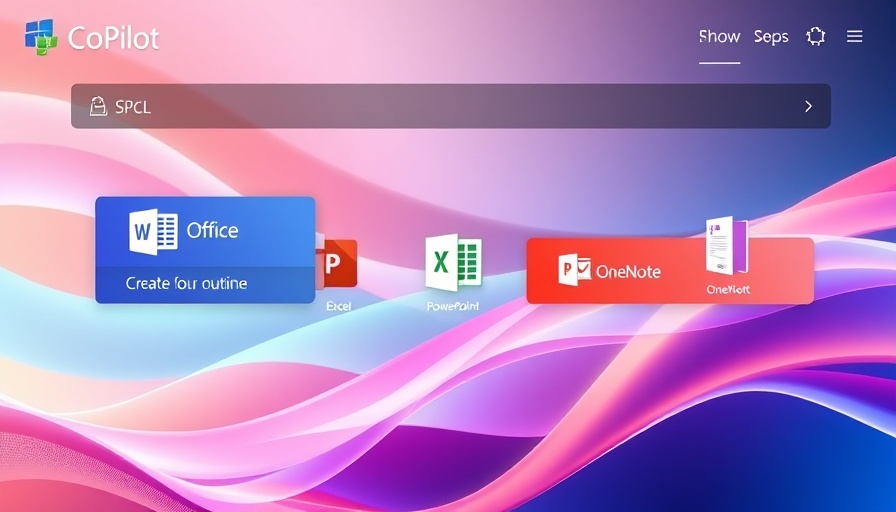
Microsoft's Unexpected Copilot Glitch: What Happened?
On March 11th, Microsoft unintentionally removed its AI assistant, Copilot, from Windows PCs due to a bug in the KB5053598 update. This update affected multiple Windows operating systems, including Windows 11 (versions 24H2, 23H2, and 22H2) and Windows 10 (versions 22H2 and 21H2). While Microsoft is in the process of restoring Copilot, the incident raises questions about update reliability and how tech companies handle system changes.
Understanding the Role of AI in Windows
As digital transformations accelerate, the integration of AI like Copilot into operating systems is becoming commonplace. By using advanced algorithms and machine learning, Copilot is designed to enhance user experience by providing guidance and support within the Windows environment. This incident reflects the growing dependence on AI tools, underscoring the importance of maintaining software integrity amid ongoing updates.
Parallels with Other Tech Glitches
This isn't the first time a major tech company has faced backlash due to software updates. Last year, Apple’s iOS update introduced a serious battery drain issue that frustrated users worldwide. Similar to the Copilot incident, users experienced a loss-of-function which sparked discussions about the testing and deployment processes in software engineering. Such scenarios highlight the critical need for thorough vetting of software updates to prevent user disruptions.
What Are the Implications for Future AI Updates?
Looking forward, the Copilot glitch could mark a pivotal moment for Microsoft. As AI continues to evolve, Microsoft might need to reassess its update strategies. Emphasizing gradual rollouts and user feedback could improve overall software resilience. Analysts speculate that in the future, companies will deploy routine testing protocols that include real-time user feedback to mitigate risks associated with software releases.
Understanding User Sentiment: Emotional Ramifications
For many users, losing access to an AI tool they rely on can be frustrating. Copilot was designed to improve productivity, and any hitch in its functioning affects user workflow. This incident not only highlights technical challenges but also emphasizes the emotional aspects of technology reliance. Understanding how these disruptions affect everyday tasks can foster more empathetic tech design strategies.
Critical Takeaways: Keeping Software Updated
Despite the issues posed by updates, it's crucial for users to maintain their systems with the latest releases. Microsoft not only addressed the Copilot bug but also patched critical vulnerabilities in the same update cycle, reinforcing the importance of cybersecurity amid potential software glitches. Users must weigh the potential risks of updates against the necessary security measures they provide.
Concluding Thoughts: The Future of AI in Operating Systems
As this incident unfolds, it serves as a reminder of the delicate balance between innovation and reliability in technology. With AI playing an increasingly central role in our computing experiences, addressing software stability and user feedback will be paramount. For enthusiasts and everyday users alike, staying informed will not only fortify their technological confidence but also enhance their engagements with AI tools like Copilot.
 Add Row
Add Row  Add
Add 




 Add Row
Add Row  Add
Add 

Write A Comment